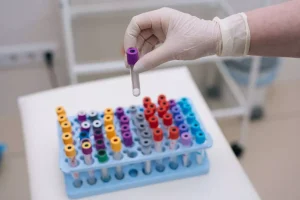
Even though they may feel more awake and energetic, this is simply a false mask put on by your brain to cover the fatigue alcohol is genuinely causing. Despite what you may have heard, anger is not an unhealthy emotion. It only becomes unhealthy when it goes unresolved and when it isn’t addressed. While anger isn’t necessarily a side effect of alcoholism, drinking to “dull” or “numb” the anger (or other emotions) isn’t just ineffective – it could be a sign that it’s time to seek help for some deeper issues. If your behavior fits the description of an angry drunk, it may be difficult to admit you behaved that way under the influence.
How to Stop Self-Medicating Depression, Anxiety, and Stress
Denial is one of the biggest obstacles to getting help for alcohol abuse and alcoholism. The desire to drink is so strong that the mind finds many ways to rationalize drinking, even when the consequences are obvious. By keeping you from looking honestly at your behavior and its negative effects, denial also exacerbates alcohol-related problems with work, finances, and relationships. Binge drinking can have many of the same long-term effects on your health, relationships, and finances as other types of problem drinking. Binge drinking can lead to reckless behavior such as violence, having unprotected sex, and driving under the influence. Binge drinking can also lead to alcohol poisoning, a serious and sometimes deadly condition.
How Alcohol Affects Anger and Aggression
Sometimes the shame of facing the things they did while intoxicated causes them to start drinking again, proliferating a vicious circle of substance use and abuse. Alcohol effects the prefrontal cortex of the brain, the region that moderates things like decision-making. What this means is that people whose personalities make them naturally quicker to become angry than others are even more likely to lose control under the influence of alcohol.
Signs and symptoms of alcoholism (alcohol dependence)
When someone has both a mental health and substance use disorder, they are considered co-occurring disorders. Instead of being a natural emotion, someone with an alcohol use disorder (AUD) will express anger to avoid dealing with unpleasant or adverse circumstances, including the addiction. The inability to control or suppress your emotions can lead to inappropriate or dangerous situations. Heightened responses due to alcohol consumption can make anger intensified.

Common Emotional Experiences While Drinking
Find a supportive friend or family member to be with you while you withdraw and support your new non-drinking lifestyle. Unstable vital signs increase the risk of complications and can be managed with medications. People who experience severe withdrawal symptoms or DTs may require hospitalization or intensive care unit (ICU) treatment during alcohol. DISCLAIMERThe https://ecosoberhouse.com/article/who-sober-alcoholics-are-and-what-it-means-to-be-sober/ content of this website is provided for informational purposes only. Nothing contained in this site is or should be considered or used as a substitute for professional medical or mental health advice, diagnosis, or treatment. If you require a drug and alcohol counsellor or clinician experienced in trauma, PTSD, anxiety and other concerns I can refer out.
Tolerance: The 1st major warning sign of alcoholism
Behavioral health treatment for alcohol problems is often (but not always) covered by insurance. In the United States, most states have low-cost or free rehabilitation programs for those who are uninsured. There are many support options available that can help guide you through alcohol withdrawal, as well as abstaining from alcohol after alcoholism and anger withdrawal. For people at low risk of complications, an office visit to your primary care provider, along with at-home monitoring and virtual office visits, may suffice. People at high risk of complications should enter a short-term in-patient detox program. However, medical complications can occur during the acute phase of withdrawal.
- Find a supportive friend or family member to be with you while you withdraw and support your new non-drinking lifestyle.
- Furthermore, compromised decision-making abilities and weakened impulse control can exacerbate aggressive behaviors, amplifying the expression of anger in alcohol-influenced situations.
- Meanwhile, Black people below the poverty level are twice as likely to report serious psychological distress compared to those with higher financial security.
- Suddenly having to feel things you’re used to numbing with substances can be overwhelming and cause anger and irritability.

